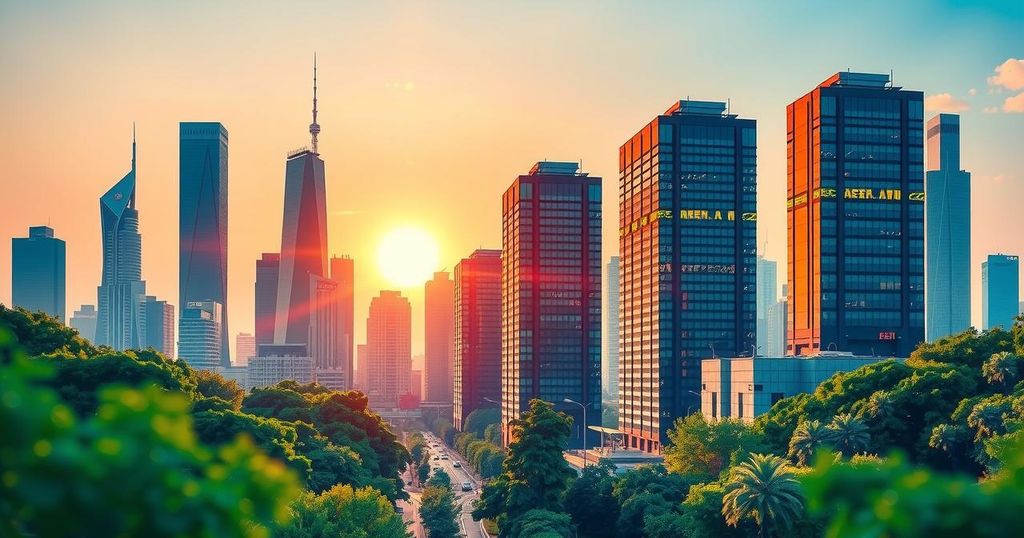Brazil’s economy grew 3.4% in 2024, driven by increased household spending and contributions from industry and services. Agriculture faced a decline. President Lula welcomed growth and projected continued advancement for 2025, despite inflation concerns.
In 2024, Brazil’s economy experienced a notable growth of 3.4 percent compared to the previous year, as reported by the Brazilian Institute of Geography and Statistics (IBGE). This growth was primarily attributed to a remarkable increase in household spending, which surged by 4.8 percent annually. Additionally, the industrial and service sectors contributed significantly, expanding by 3.3 percent and 3.7 percent, respectively.
However, the agricultural sector faced a decline of 3.2 percent due to unfavorable harvest conditions. Exports rose by 2.9 percent, whereas imports saw a more substantial increase of 14.7 percent, largely driven by heightened demand for chemicals, machinery, and motor vehicles.
Brazilian President Luiz Inacio Lula da Silva expressed his optimism regarding the economic growth, declaring 2025 as “the year of the harvest.” He emphasized the positive implications of a growing GDP, stating that it leads to more employment opportunities and increased financial resources for citizens.
Minister of Planning and Budget, Simone Tebet, revealed that Brazil’s GDP per capita reached 55,247.45 reais (9,558.4 U.S. dollars) in 2024, marking a 3.0 percent rise. She underscored the importance of addressing inflation to help mitigate food prices.
Financial analysts project a GDP growth rate of approximately 2.01 percent for 2025, while government expectations are slightly higher at 2.3 percent. This anticipated growth reflects ongoing economic efforts and strategic planning by Brazilian authorities.
Overall, Brazil’s economic progression in 2024 showcases significant advancements, particularly in household spending and various sectors, despite facing challenges in agriculture. The government’s forward-looking initiatives aim to sustain this momentum into the coming years.
In summary, Brazil’s economy grew by 3.4 percent in 2024, largely led by strong household spending and contributions from the industrial and service sectors. While the agricultural sector saw a decline, exports rose, and imports increased significantly. The government and financial markets foresee continued growth in 2025, highlighting optimism regarding Brazil’s economic landscape.
Original Source: english.news.cn




